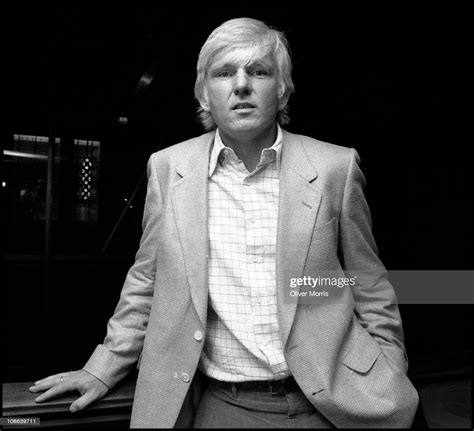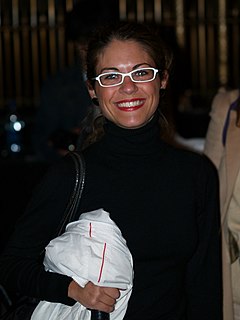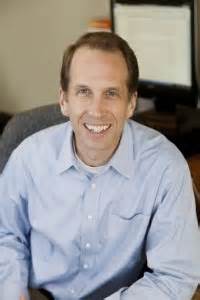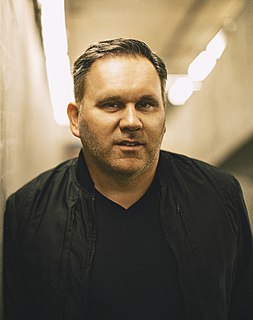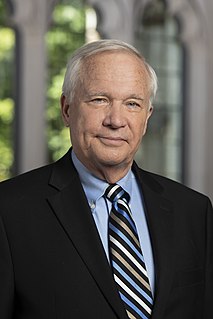Top 582 Shifting Quotes & Sayings - Page 10
Explore popular Shifting quotes.
Last updated on April 18, 2025.
We should, I believe, beware of the pitfalls described by Taine: 'Imagine a man who sets out on a voyage equipped with a pair of spectacles that magnify things to an extraordinary degree. A hair on his hand, a spot on the tablecloth, the shifting fold of a coat, all will attract his attention; at this rate, he will not go far, he will spend his day taking six steps and will never get out of his room.' We have to get out of this room.
Just in the past couple of years, there's been pushback against some of that marketing, as parents have gotten really upset. Now we're seeing Coke and Pepsi kind of shape-shifting. Instead of doing these very explicit marketing deals, they are getting into schools in much more hidden ways - things like My Coke Rewards, where they encourage schools to push their student body to purchase Coke products, in exchange for points that go toward various products for the school. It's a way for these companies to get in front of kids, presented as a form of charity.
All cities are geological; you cannot take three steps without encountering ghosts bearing all the prestige of their legends. We move within a closed landscape whose landmarks constantly draw us toward the past. Certain shifting angles, certain receding perspectives, allow us to glimpse original conceptions of space, but this vision remains fragmentary. It must be sought in the magical locales of fairy tales and surrealist writings: castles, endless walls, little forgotten bars, mammoth caverns, casino mirrors.
There is nothing “still” in the remarkably visceral poems of Alexander Long's third collection, Still Life, and nothing is at rest in these restless and edgy poems. Conversational and kinetic, these poems chart the traces left by the shifting overlays of the templates of literature, rock-and-roll, and contemporary culture. As each poem in Still Life attempts to fix a focus upon a scene or subject, the protean natures under view draw the poet into the eddies and complexities of reflection. This is a powerful and moving collection of poems.
But that's kind of an easy stance to be if you're a humor columnist, because you're tending to make fun of the government and the powerful. I'm sort of a soft-core libertarian in that my compass is generally pointing away from 'Let's let the government do this' Does it matter to me that it's Democrats who think we need more elaborate programs that involve shifting money from one group to another group or it's Republicans saying we need to take a harder look at what kinds of things people are watching on cable TV? Neither one of those things strikes me as a good idea.
So the Bush-Obama administration has taken a fiscal stance diametrically opposed to that of the patron saint of free enterprise. While escalating war in Afghanistan and maintaining over 850 military bases around the world, the administration has run up the national debt that Smith decried. By shifting the tax burden off property and off rent-seeking monopolies - above all, off the financial sector - this policy has raised America's cost of living and doing business, thereby undercutting its competitive power and running up larger and larger foreign debt.
We do have the ability to shift our paradigms - by shifting our belief systems, by working on ourselves, by looking very closely at how we show up in the world. It's why I'm into health and wellness. It's why my partner and I are very focused on creating a life that is about being connected; it's about being present. Because my life was probably so much in the past. I was so fearful. I was so fearful of the future because I was so scared of my past. So if you can work towards being present, then you can shift.
God will not turn away from doing you good. He will keep on doing good. He doesn't do good to His children sometimes and bad to them other times. He keeps on doing good and He never will stop doing good for ten thousand ages of ages. When things are going bad that does not mean God has stopped doing good. It means He is shifting things around to get them in place for more good, if you will go on loving Him.
I find that somehow, by shifting the focus of attention, I become the very thing I look at, and experience the kind of consciousness it has; I become the inner witness of the thing. I call this capacity of entering other focal points of consciousness, love; you may give it any name you like. Love says "I am everything". Wisdom says "I am nothing". Between the two, my life flows. Since at any point of time and space I can be both the subject and the object of experience, I express it by saying that I am both, and neither, and beyond both.
The study of the properties of numbers, Plato tells us, habituates the mind to the contemplation of pure truth, and raises us above the material universe. He would have his disciples apply themselves to this study, not that they may be able to buy or sell, not that they may qualify themselves to be shopkeepers or travelling merchants, but that they may learn to withdraw their minds from the ever-shifting spectacle of this visible and tangible world, and to fix them on the immutable essences of things.
Shifting Philip Morris to the new a non-risk products doesn't mean that I will give market share to my competitors free of charge. In the markets where we are not present with IQOS yet or the other reduced-risk products, you still need to defend your share of the market. They still represent the bulk of our income, and so far they have financed the billions of dollars we have put behind these new products. But once we go national in a market, and absent capacity constraints, then you shift your resources and your focus to these new products.
Radio, or at least the kind of radio we're proposing to do, can cut through that. It can reach people who would otherwise never hear your work, and of course I find that very notion inspiring. Radio stories are powerful because the human voice is powerful. It has been and will continue to be the most basic element of storytelling. As a novelist (and I should note that working my novel is the first thing I do in the morning and the very last thing I do before I sleep), shifting into this new medium is entirely logical. It's still narrative, only with different tools.
The world in the past has been ruled by force, and man has dominated over woman by reason of his more forceful and aggressive qualities both of body and mind. But the balance is already shifting—force is losing its weight and mental alertness, intuition, and the spiritual qualities of love and service, in which woman is strong, are gaining ascendancy. Hence the new age will be an age less masculine, and more permeated with the feminine ideals—or, to speak more exactly, will be an age in which the masculine and feminine elements of civilization will be more evenly balanced.
My conception around being a woman in 2016 has definitely been shifting over the past year, because I feel like I'm proud of womanhood, and I feel attached to it, and at the same time I'm someone who doesn't believe in having a gender binary, and so often times I separate those two concepts in my mind - the concept of being a woman and the concept of being a girl or being female, being kind of attached to a certain gender identity.
Confine yourself to observing and you always miss the point of your life. The object can be stated this way: Live the best life you can. Life is a game whose rules you learn if you leap into it and play it to the hilt. Otherwise, you are caught off balance, continually surprised by the shifting play. Non-players often whine and complain that luck always passes them by. They refuse to see that they can create some of their own luck. Darwi Odrade - Chapterhouse: Dune
. . . I do think that deep down, a lot of my work is about people trying to make reasonable accommodations of situations that are insane or absurd. . . . At first I thought the events had power in themselves, that I would just present them. I really wasn't aware of the things that finally became central issues to me - the shifting alliances, the way people hardly even know they've shifted. That part of [A QUESTION OF MERCY] is very familiar to me in terms of my other plays.
We've become more and more interrupt-driven. If you have six tasks to do in an hour, you can't just take 60 minutes and divide and have 10 minutes per task. You have 10 minutes per task minus the time required for context-shifting. That will be the next big challenge: figuring out how to fight the distraction-driven mode we're in and stay focused on one thing long enough to get it done.
Failure to summon forth the courage to risk a nondogmatic and nonevasive stance on such crucial existential matters can also blur our ethical vision. If our actions in the world are to stem from an encounter with what is central in life, they must be unclouded by either dogma or prevarication. Agnosticism is no excuse for indecision. If anything, it is a catalyst for action; for in shifting concern away from a future life and back to the present, it demands an ethics of empathy rather than a metaphysics of fear and hope.
'So,' he said as we turned onto the main road, the muffler rattling, 'I've been thinking.' 'Yeah?' He nodded. 'You really need to go out with me.' I blinked. 'I'm sorry?' 'You know. You, me. A restaurant or movie. Together.' He glanced over, shifting gears. 'Maybe it's a new concept for you? If so, I'll be happy to walk you through it.' 'You want to take me to a movie?' I asked. 'Well, not really,' he said. 'What I really want is for you to be my girlfriend. But I though saying that might scare you off.'
You’re too important to just … die.” He shakes his head. He won’t even look at me—his eyes keep shifting across my face, to the wall behind me or the ceiling above me, to everything but me. I am too stunned to be angry. “I’m not important. Everyone will do just fine without me,” I say. “Who cares about everyone? What about me?
The Professor took the old practices and studied them, worked out their mechanical principles and then devised a graded scientific set of tricks, but is based on the elementary laws of mechanics, a study of the equilibrium of the human body, the ways in which it is disturbed, how to recover your own and take advantage of the shifting of the center of gravity of the other person. The first thing that is taught is how to fall down without being hurt, that alone is worth the price of admission and ought to be taught in all our gyms.
Fashion went from being much more rarefied to being more accessible. Now everything is changing in the art world, too: even the highest level of institutions are becoming more aware of the general public, like the McQueen exhibit at the Metropolitan or the Tim Burton at the MoMA or how the Gagosian does historic Picasso shows, bringing museum quality into a gallery. Galleries are becoming more like museums, and museums are becoming more accessible. In the next decade, I think it'll be blown open: there will be a lot of shifting around in terms of how artists approach their work.
A million years ago, when doing research about the world of municipal government, one thing that struck me is how often people's job titles changed - from one department to another, from the public to the private sector and back again. People move around a lot, everyone has her eye on some other, slightly better situation in some other corner of city hall. Plus governments are constantly shuffling and reorganizing and shuttering or condensing departments - they are often byzantine hodge-podges of fractured org charts lying atop a bed of shifting sand.
Cuba is actually one where I am more optimistic because of the unique nature of Cuba - 90 miles off our shore with a massive ex-patriot population, now Cuban-American population that still have deep links to the island. There I am more confident that over time that the winds of commerce and telecommunication and travel start shifting the nature of that regime. But that's a small country which has almost a unique relationship to us.
Little Words When you are gone, there is nor bloom nor leaf, Nor singing sea at night, nor silver birds; And I can only stare, and shape my grief In little words. I cannot conjure loveliness, to drown The bitter woe that racks my cords apart. The weary pen that sets my sorrow down Feeds at my heart. There is no mercy in the shifting year, No beauty wraps me tenderly about. I turn to little words- so you, my dear, Can spell them out.
Euclid alone has looked on Beauty bare. Let all who prate of Beauty hold their peace, And lay them prone upon the earth and cease To ponder on themselves, the while they stare At nothing, intricately drawn nowhere In shapes of shifting lineage; let geese Gabble and hiss, but heroes seek release From dusty bondage into luminous air. O blinding hour, O holy, terrible day, When first the shaft into his vision shone Of light anatomized! Euclid alone Has looked on Beauty bare. Fortunate they Who, though once only and then but far away, Have heard her massive sandal set on stone.
Lord Maccon asked meekly, shifting against her in a manner that ensured she realized the nibbling had affected his outsides just as much as her insides. Alexia was partly shocked, partly intrigued by the idea that as he was naked, she might actually get to see what he looked like. She had seen sketches of the nude male, of course, for purely technical purposes. She was given to wonder if werewolves were anatomically bigger in certain areas.
You're thinking of Europe as Germany and France. I don't. I think that's old Europe. If you look at the entire NATO Europe today, the center of gravity is shifting to the east. And there are a lot of new members. And if you just take the list of all the members of NATO and all of those who have been invited in recently -- what is it? Twenty-six, something like that? -- you're right. Germany has been a problem, and France has been a problem.
For nothing is fixed, forever and forever, it is not fixed; the earth is always shifting, the light is always changing, the sea does not cease to grind down rock. Generations do not cease to be born, and we are responsible to them because we are the only witnesses they have. The sea rises, the light fails, lovers cling to each other and children cling to us. The moment we cease to hold each other, the moment we break faith with one another, the sea engulfs us and the light goes out.
If the life-supporting ecosystems of the planet are to survive for future generations, the consumer society will have to dramatically curtail its use of resources - partly by shifting to high-quality, low-input durable goods and partly by seeking fulfillment through leisure, human relationships, and other nonmaterial avenues. We in the consumer society will have to live a technologically sophisticated version of the life-style currently practiced lower on the economic ladder.
The leaves streamed down, trembling in the sun. They were not green, only a few, scattered through the torrent, stood out in single drops of green so bright and pure that it hurt the eyes; the rest were not a color, but a light, the substance of fire on metal, living sparks without edges. And it looked as if the forest were a spread of light boiling slowly to produce this color, the green rising in small bubbles, the condensed essence of spring. The trees met, blending over the road and the spots of sun on the ground moved with the shifting of the branches, like a conscious caress.
What would happen if history could be rewritten as casually as erasing a blackboard? Our past would be like the shifting sands at the seashore, constantly blown this way or that by the slightest breeze. History would be constantly changing every time someone spun the dial of a time machine and blundered his or her way into the past. History, as we know it, would be impossible. It would cease to exist.
I drove off, with my friends watching me go, all of them grouped on Lissa's hood. As I pulled onto the road, I glanced into the rearview and saw them: they were waving, hands moving through the air, their voices loud, calling out after me. The square of that mirror was like a frame, holding this picture of them saying good-bye, pushing me forward, before shifting gently out of sight, inch by fluid inch, as I turned away.
I love to say that not only is the throne room of God a place of reverence, it's always a place of refuge. So when everything else in life seems to be shifting, or breaking and shaking apart, there's a place that is always stable, safe, and constant. When we draw near to God in worship, and approach His throne, we tap into that. It's a very re-assuring place, where we're reminded that there's a God on His throne, and even when we don't understand everything, we can trust it to Him.
The strange thing about the apocalypse is that it's uneven. For some people, it goes one way and for others another way, so that there's always this shifting relation to the narrative of the disaster. Sometimes apocalypses are just structural fictions, and sometimes they're real. Sometimes a narrative requires an end - the fact that the beginning was always leading somewhere becomes clear at the end. There's an idea that we're always in the middle, but we posit this apocalyptic end in order to also be able to project into the past or the beginning. I think that's true and false.
Next to fat babies, midgets are my favorite things to hold. I love them so much, and I want to help them to do adult things like drive cars, Jet-Ski, and lip-synch. I’m in awe of their little limbs, their large craniums, and their medicine-ball asses. I love the little baby steps they take while shifting their weight from side to side, and the fact that when you knock one over accidentally, he flails like a turtle on its back that can’t get up right away.
Colored lights shone right across the northern sky, leaping and flaring, spreading in rainbow hues from horizon to zenith: blood red to rose pink, saffron yellow to delicate primrose, pale green, aquamarine to darkest indigo. Great veils of color swathed the heavens, rising and falling as light seen through cascading curtains of water. Streamers shot out in great shifting beams as if God had put his thumb across the sun.
Watch how your mind judges. Judgment comes, in part, out of your own fear. You judge other people because you're not comfortable in your own being. By judging, you find out where you stand in relation to other people. The judging mind is very divisive. It separates. Separation closes your heart. If you close your heart to someone, you are perpetuating your suffering and theirs. Shifting out of judgment means learning to appreciate your predicament and their predicament with an open heart instead of judging. Then you can allow yourself and others to just be, without separation.
you mean machines are like humans?" I shook my head. "No, not like humans. With machines the feeling is, well, more finite. It doesn't go any further. With humans it's different. The feeling is always changing. Like if you love somebody, the love is always shifting or wavering. It's always questioning or inflating or disappearing or denying or hurting. And the thing is, you can't do anything about it, you can't control it. With my Subaru, it's not so complicated.
Just when I get my church all sorted out, sheep from the goats, saved from the damned, hopeless from the hopeful, somebody makes a move, get out of focus, cuts loose, and I see why Jesus never wrote systematic theology. So you and I can give thanks that the locus of Christian thinking appears to be shifting from North America and northern Europe where people write rules and obey them, to places like Africa and Latin America where people still know how to dance.
I am interested in the possibility that we are going to be wrong in the same way that history has indicated that mankind always is. It seems as though the history of ideas is the history of being wrong. And to me, that is a kind of continuum. It's a continual path that shows we don't always know something, but we're always shifting to a path that makes us feel more comfortable in the moment, even if that shift is wrong, and a new shift is destined to happen again.
First of all, although men have a common destiny, each individual also has to work out his own personal salvation for himself in fear and trembling. We can help one another to find the meaning of life no doubt. But in the last analysis, the individual person is responsible for living his own life and for "finding himself." If he persists in shifting his responsibility to somebody else, he fails to find out the meaning of his own existence. You cannot tell me who I am and I cannot tell you who you are. If you do not know your own identity, who is going to identify you?















